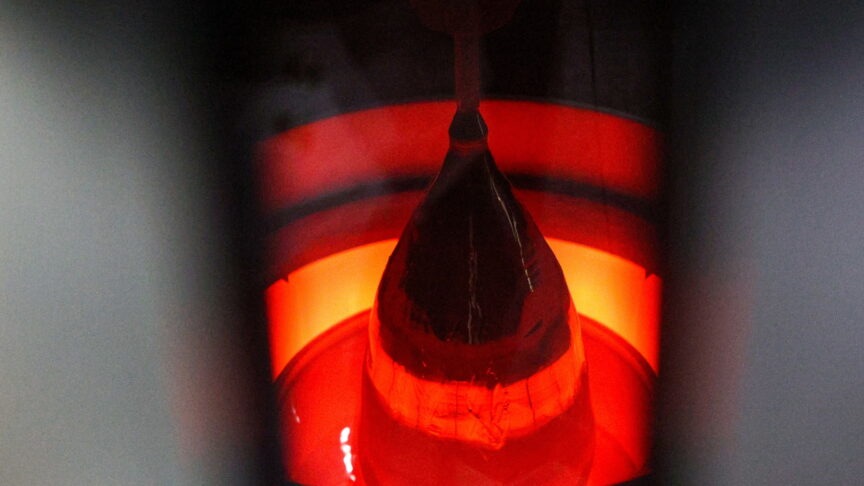Rocking the boat: The Macron method
The thread that runs through most of Macron’s speeches and declarations is European strategic sovereignty: he fears that Europe will be marginalised in a world in which authoritarian powers are rising.
Two days before the 30th anniversary of the fall of the Berlin Wall, the Economist released a long interview with French President Emmanuel Macron that detailed his political, economic, and strategic vision for Europe. The debate raging around the interview has concentrated on its title: “NATO is brain-dead”. But Macron also discusses most of his recent diplomatic stances that have raised the alarm in northern and eastern Europe: on Russia, the western Balkans, and his apparent hard line on extending the Brexit deadline. Several of these positions highlighted the growing drift between Paris and Berlin on the way forward for Europe. And his declaration on NATO is no exception. Yesterday, German Chancellor Angela Merkel rejected his claim, while German Defence Minister Annegret Kramp-Karrenbauer gave a speech detailing her vision of Germany’s security and defence policy. The speech reiterated Germany’s commitment to achieving the NATO goal of defence spending of 2 percent of GDP.
One thing is certain: Macron has achieved his goal of stimulating and leading a debate on these issues. All the while, he seems to be impermeable to his detractors. This is the Macron method. It is the usual en même temps: radical in methodology and directly opposed to the consensus-building that Europeans and the multilateral system are used to. It is the political line that he has followed since coming to power in 2017.
In this sense, there is nothing new in the Economist interview, aside from Macron’s unfortunate choice of words on NATO – which forms part of his account of the Turkish incursion into northern Syria. He followed the comment by stating: “this situation, in my opinion, doesn’t call into question the interoperability of NATO, which is efficient between our armies; it works well in commanding operations. But, strategically and politically, we need to recognise that we have a problem.” He was calling for greater coordination and – again – a shared strategic vision of Europe’s and NATO’s interests. This the same approach he has taken to developing European defence capabilities in the framework of European strategic sovereignty.
Macron knows NATO remains indispensable and that the new instruments Europe is acquiring will complement the alliance.
Early in his term, he vowed to gain the Germans’ support by reassuring them that he would reform France – hoping that, in return, Berlin would support his projects for EU reform. Much to his frustration, and partly for German domestic reasons, this approach has not worked. So, instead of waiting for his partners, Macron is imposing his tempo and proposing new initiatives almost every week.
The European Council on Foreign Relations has repeatedly called for greater intellectual investment in European strategic thinking, to end the strategic cacophony on the continent. And the Macron method is partly designed to achieve this goal. But one must be wary of areas in which the method could be counter-productive. Macron knows NATO remains indispensable and that the new instruments Europe is acquiring – Permanent Structured Cooperation, the European Defence Fund, the Coordinated Annual Review on Defence, and the European Intervention Initiative – will complement the alliance. However, as strategist François Heisbourg points out: “there is a real problem and the danger of a self-fulfilling prophecy when Trump and Macron say similar things about article 5, particularly at a time when there is no common European consent, nor capabilities, as to a non-NATO substitute”.
In the course of their duties, all French presidents give a landmark speech on their vision of French nuclear deterrence. François Hollande gave his in 2015, declaring that the very existence of French nuclear deterrence is a strong and essential contribution to Europe. The key question now concerns whether Macron is ready to take this a step further: should the US nuclear security guarantee for Europe prove unreliable, will France be willing to replace it? In an ECFR survey of European attitudes towards nuclear deterrence conducted last year, respondents from the Baltic region and eastern Europe expressed a clear lack of trust in the French nuclear deterrent. Therefore, if it was to replace the US as a provider of nuclear deterrence for the European Union, France would have to conduct a massive exercise across Europe to gain its partners’ trust.
The thread that runs through the Economist interview – and through most of Macron’s speeches and declarations – is European strategic sovereignty. He fears that Europe will be marginalised in a world in which authoritarian powers are rising, the US-China duopoly looks set to dominate, and the legitimacy of the multilateral system is increasingly being called into question. He believes that Europe can only retain its power by bolstering its sovereignty in defence and technology, while fighting populism through the creation of a new social contract. All of this requires the reform of the EU from the inside.
That Macron sparked a conversation on these topics is a success in itself. But the Macron method will need to pay greater heed to France’s key European and NATO partners if he is to achieve his goals. This is especially true given his fear that we are witnessing the end of a world order – the Western hegemony that followed the fall of the Berlin Wall. If it is to help build a new world order in which it stands on its own as a geopolitical power, Europe will need all the help it can get.
The European Council on Foreign Relations does not take collective positions. ECFR publications only represent the views of their individual authors.


